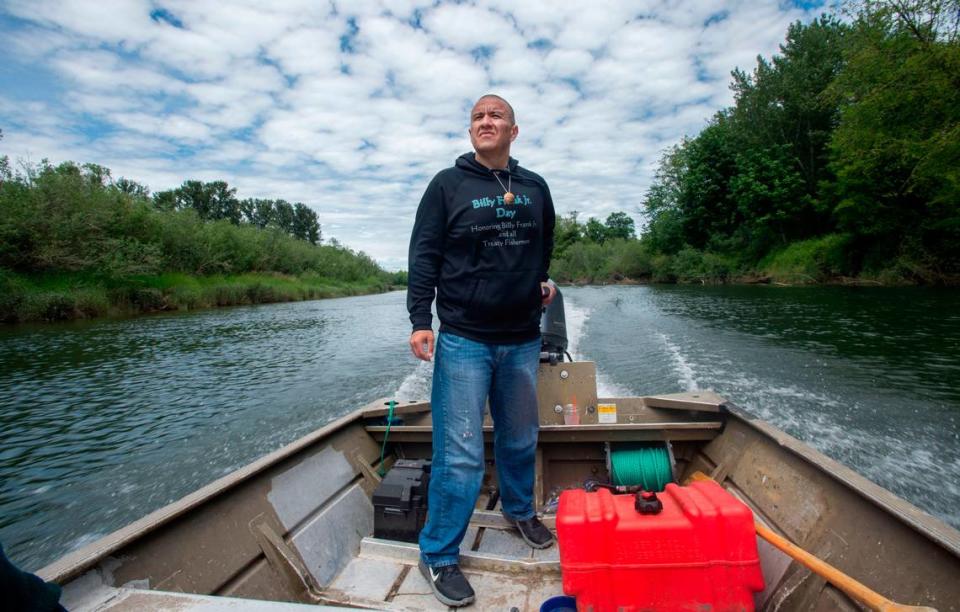50th anniversary of Boldt Decision is a ‘good time to be alive’ for Nisqually community
For the Nisqually Indian Tribe, 2024 will be an important year. It will be the 50th anniversary of the Boldt Decision, which was a turning point for tribal fishing rights, and respect for our sovereignty. That decision helped spark a renaissance for our culture and our economy.
Fifty years ago, many Nisqually families were struggling. Our treaty fishing rights had long been violated, and the salmon of the Nisqually River and its tributaries, our homeland, were in decline.
The Boldt Decision made tribes equal partners with the state in salmon management and restoration. At Nisqually, it led to the creation of a robust Natural Resources Department, and tribal leadership in managing our watershed to protect and restore wild salmon and the habitat they need.
We have built and manage two major hatcheries that provide salmon for harvest by our tribal fishermen, and for the Washington fishing industry. Along with many non-native partners, we have established a strong sense of a watershed community — we all are neighbors and are responsible to each other for our future.
Within the decade following the Boldt Decision, the Tribe acquired land in and near our reservation and build a Community Center and housing so that tribal members were able to move back to their reservation to help revitalize the Nisqually community. Our community’s housing stock has expanded to meet the needs of growth, and we have established an entire housing program that provides a wide variety of housing and construction.
Slowly and steadily over these 50 years the Nisqually Tribe has established a comprehensive community support system. We now have a large, well-equipped and staffed Community Health Department with its own new building with all health and wellness services under one roof. We also have added programs to address the social service needs of our community.
When Nisqually Indians talk about our community, we all agree that our elders are vital. We have invested in recent years in a new elders’ service building and elders’ housing. The elders’ building is strategically placed adjacent to the new elders’ housing, and both are close to our new Health and Wellness Center.
Our youth are essential to our future. We want them to be well-educated in an environment that is respectful of our Nisqually culture and way of life. To our good fortune, our neighboring school districts have been very open to meeting these needs.
Our language, Lushootseed, is key to our cultural identity. Fifty years ago, only a few elders spoke it. Today, two of our Tribal Council members speak our language and have trained several Nisqually members to teach it under the aegis of our new Language Department. Lushootseed is now being offered to students by Nisqually teachers in a few of our local school districts. We have classes for Tribal members, employees, and local school districts. We are creating signs in Lushootseed on and off reservation, creating a new Lutshootseed language app, and more. Nothing symbolizes the changes we have experienced at Nisqually more than these efforts.
Fifty years ago, the Nisqually Tribe had minimal government employees and no enterprises. Today we have thriving businesses and plans to continue expansion for more diverse economic opportunities. Currently the Nisqually Tribe has well over 2,000 employees, which has quite a substantial impact on our local economy.
Nothing is more important, however, than the revival of our Nisqually culture, a people living in our home territory with the Nisqually River as one of our central cultural elements. We have a growing food sovereignty program, growing traditional and nutritious foods for everyone.
The Nisqually Indian Tribe has proved resilient, and made giant strides in the past 50 years. Like other communities, we still have many problems to solve, but we are proud of our progress, and appreciative of our many allies and partners. For Nisqually people, it’s a good time to be alive.
Willie Frank III is chairman of the Nisqually Indian Tribe.


